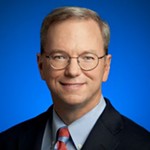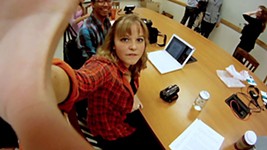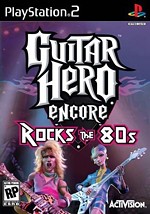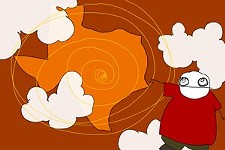Roll Over, Beethoven
An interview with Francis Preve, Laptop Composer and Producer
By Courtney Fitzgerald, Fri., March 26, 2004
Austin Chronicle: How much does one have to know about music – the technical side of keys and modes, etc. – to be a successful "laptop musician"?
Francis Preve: That's an interesting question. The bottom line is that you really need to dedicate the time to learn the software and understand how synths and digital audio work.
AC: But you don't have to be trained in theory?
FP: Some applications, like Ableton Live and Acid's Garageband, make composition with loops ridiculously easy. Theory isn't needed, but it definitely helps.
AC: So, one could argue that this new technology can make musicians out of the tone deaf.
FP: No. You really need to have a sense of musicality and timing. Believe me, I've heard some really awful laptoppers.
AC: How did you come to music? Did you play an instrument as a child?
FP: I started banging on the home piano as soon as I could walk. ... I don't really play piano anymore, but I can play keyboards well enough to program my ideas into the software.
AC: Program your ideas into the software? Do you usually have to use an external instrument to feed information into the computer?
FP: There are pretty much three ways to compose on a laptop: First, using pre-existing loops, which come from developers like Sony, Apple, Big Fish Audio, E-Lab. These loops can be recombined in different ways to create original compositions. It's similar to DJing, but you have total control over each component in your composition. Second, using a portable keyboard as an input device. This keyboard then drives a software based collection of synthesizers. Propellerhead Reason and eMagic Logic Pro are the primary software apps of choice for this type of composing. The synths can also be sequenced within Logic or Reason, so you can compose your backing tracks at home, then improvise over the top when playing live. The third way is actually more traditional. If you play an acoustic or electric instrument, you can actually create your own samples and loops, then record these into the laptop for further manipulation.
AC: Could you give me an example beginner's start-up kit?
FP: If you buy a brand new Macintosh, it's all included! You'll need to get a USB or MIDI keyboard to play or enter notes, chords, and riffs, and maybe a microphone if you want to record vocals. All new Macs come with a software product called Garageband. Garageband is a mini virtual studio that's completely capable of creating electronic or acoustic music. If you want to use what advanced laptoppers use, you'll need to get Ableton Live and/or Propellerhead Reason.
AC: Do you ever encounter people accusing this type of music as unmusic? That is, not bona fide?
FP: Oh, totally. I had this conversation with BT a couple of months ago. He gets it all the time. There are two components: To those who say that sequencers are cheating, that you aren't actually playing all of the notes yourself, I direct them to Mozart and Beethoven, who obviously couldn't play every orchestral instrument simultaneously, but were able to conceptualize the symphonies and put dots on paper to communicate their ideas to other musicians.
AC: But if you're using a loop, you are not composing each note that is produced, yes?
FP: To those who say that synthesizers and loops aren't "real" instruments, the fact of the matter is that the Moog synth was invented about 40 years ago, tape loops came about during the French Musique Concrete movement in the mid-20th century, and the theremin is nearly 100 years old. How long does it take for a new type of instrument to be accepted? People often forget that there was a backlash against the piano and organ when they were first invented, too. I mean, should we all go back to log drums and bean shakers? As for using loops but not composing the actual notes, there are many record producers who made brilliant recordings and arrangements from the musings of other musicians. George Martin is a perfect example. I mean how many Beatles tracks from the late Sixties are really George doing the work while the band tripped? That's a bit extreme, I admit.
AC: What do you mean with that Beatles comment? I am intrigued.
FP: Well there are several examples, notably from the Sgt. Pepper's and Magical Mystery Tour era, where, according to legend, George and the band took several tape reels of symphonic recordings, haphazardly cut them up with scissors, then tossed them in the air like spaghetti. From there George spliced the sections back together and laid them into the tracks. In later years, "Revolution 9" is a perfect example. There's not a lot of guitar playing on that track. Then you get into Pink Floyd. The main groove for "Money" is a friggin' cash register!
AC: What do you think the emergence of this sort of music's popularity reflects about the world today? That is a heavy question.
FP: Heavy, but I think I've got the hubris to tackle it! First of all, I think the "DJ as Rock Star" phenomenon has changed the way young adults perceive musicians. What is a musician? Is she or he a composer? A virtuoso? A producer? A technologist? The best DJs' functions are as tastemakers, leading the audience, Pied Piper-style, on a trip through the latest music. But even they'll admit that they didn't play all the instruments. They're spinning vinyl or CDs or data files. At the other extreme, powerful music software has become so ubiquitous that a teenager can have access to exactly the same types of tools that I spent tens of thousands for in the early Nineties. So now that the tools are sufficiently democratized, it's going to be a matter of who can bring originality and creativity to the table. One thing is certain: The "hook" will never go away. People will always rely on groove and melody to decide whether they like a song. ![]()












